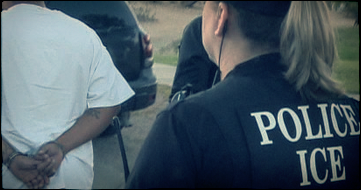When the president gave his prime-time national television address last November to announce the series of executive actions his administration was pursuing (many of which are now barred by a federal court restraining order pending appellate hearing), he made a point of suggesting that he would be balancing the grant of deferred action and work permits to millions of illegal aliens on the one hand, with strong steps to curb the most egregious aspects of illegal immigration. He spoke of focusing on "felons, not families" and putting an emphasis on interdicting criminals and gangs — exactly the kind of individuals who make up the alien smuggling organizations that are getting rich trafficking in human misery across our southern frontier.
Many people, myself included, have questioned the administration's sincere commitment to any kind of serious immigration enforcement goals, including the kind outlined in the president's remarks, and with good reason.

For instance, despite his avowed concern over prioritizing apprehension of criminals, Immigration and Customs Enforcement (ICE), the Department of Homeland Security (DHS) agency that is responsible for immigration work in the interior of the country, has been inappropriately releasing tens of thousands of criminal aliens every year for the past several years, many of whom have become recidivists and committed new crimes after their release, when they should instead have been deported. (See here, here, and here.)
So it was with some interest that I read the prepared statements of DHS, ICE, and Customs and Border Protection (CBP) officials who recently testified before the House Committee on Homeland Security on the subject, "The Outer Ring of Border Security: DHS's International Security Programs". I wanted to know specifically what they had to say about the government's ongoing anti-smuggling and other prosecutorial efforts, which are of course key to maintaining control of our borders in the most fundamental sense and also have a significant impact on the rest of the country since most smuggled aliens don't stay in geographic areas proximate to the border, but move as quickly as they can to interior areas.
In his testimony, Alan Bersin, assistant secretary and chief diplomatic officer in the DHS Office of Policy (and former acting director of CBP, which includes both border patrol and border inspection functions) speaks at length about "securing and managing borders" through a variety of means, including creation of new joint task forces and Border Enforcement Security Task Forces (BESTs), which are described as "an effective law enforcement mechanism to identify threats, address vulnerabilities, and identify, disrupt and dismantle transnational criminal organizations."
Lev Kubiak, assistant director of international operations within Homeland Security Investigations (HSI, the investigative division at ICE), used similar superlatives in his statement:
HSI enforces more than 400 federal laws and regulations with jurisdiction of crimes with a nexus to U.S. borders and ports of entry. HSI focuses its broad investigative authority on three operational priorities — border security, public safety, and counterterrorism/national security. Our agency investigates offenses that stem from its traditional customs and immigration authorities [including] human trafficking and human smuggling ... transnational gangs ... and document fraud and the like.
The rhetoric for these DHS and ICE efforts is certainly high-flying, but does the reality match the oratory? The short answer is no.
- According to internal ICE statistical reports, in federal fiscal year (FFY) 2014, there were 1,140 convictions for alien smuggling. ICE was responsible for initiating only 338 of them, which is less than 30 percent.
- ICE reports also reflect that for the first half of FY 2015 (which began last October 1), the figures are even more abysmal: There have only been 289 alien smuggling convictions through March, of which ICE initiated 77 — less than 27 percent.
At this rate, both overall and ICE-initiated alien smuggling prosecutions will decline substantially in 2015, although one would think that after the months and months of illegal border crossing surges, especially in the Rio Grande Valley of Texas, the number of human smuggling trafficking and smuggling cases would have experienced a parallel surge based on leads, apprehensions, and investigative developments by all of these joint task forces and BESTs.
But the hemorrhaging of the immigration enforcement criminal prosecution program goes beyond alien smuggling. In fact, not withstanding the president's announced priorities and the testimonies of Bersin and Kubiak, there has been a substantial decline in all immigration-related prosecutions, according to Syracuse University's Transactional Records Clearinghouse (TRAC), which recently issued a report showing that criminal immigration convictions have dropped 20 percent since 2013.
Once again we're reminded to look behind the curtain whenever the wizard or his mandarins speak if we really want to know what's going on.
